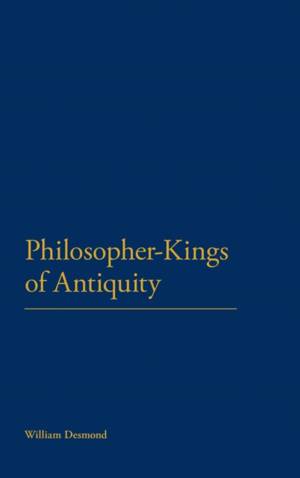
- Afhalen na 1 uur in een winkel met voorraad
- Gratis thuislevering in België vanaf € 30
- Ruim aanbod met 7 miljoen producten
- Afhalen na 1 uur in een winkel met voorraad
- Gratis thuislevering in België vanaf € 30
- Ruim aanbod met 7 miljoen producten
Zoeken
Omschrijving
One of the most celebrated of Plato's ideas was that if human society was ever to function successfully then philosophers would need to become kings, or kings philosophers. In a perfect state, therefore, philosophic wisdom should be wedded to political power. In antiquity, who were or aspired to be philosopher-kings? What was their understanding of wisdom and the limits of knowledge? What influence have they had on periods beyond antiquity? This volume focuses on Plato and his contemporaries; Alexander the Great and his Hellenistic successors; Marcus Aurelius and the 'good emperors'; Moses, Solomon and early Hebrew leaders; and Julian the Apostate, the last of the pagans. In conclusion it looks at the re-emergence of the Platonic ideal in important moments of European history, such as the Enlightenment. The theme of the philosopher-king is significant for Greco-Roman antiquity as a whole, and this work is unique in detailing the development of an idea through major periods of Greek and Roman history, and beyond.
Specificaties
Betrokkenen
- Auteur(s):
- Uitgeverij:
Inhoud
- Aantal bladzijden:
- 272
- Taal:
- Engels
Eigenschappen
- Productcode (EAN):
- 9780826434753
- Verschijningsdatum:
- 29/12/2011
- Uitvoering:
- Hardcover
- Formaat:
- Genaaid
- Afmetingen:
- 156 mm x 234 mm
- Gewicht:
- 557 g

Alleen bij Standaard Boekhandel
+ 678 punten op je klantenkaart van Standaard Boekhandel
Beoordelingen
We publiceren alleen reviews die voldoen aan de voorwaarden voor reviews. Bekijk onze voorwaarden voor reviews.








